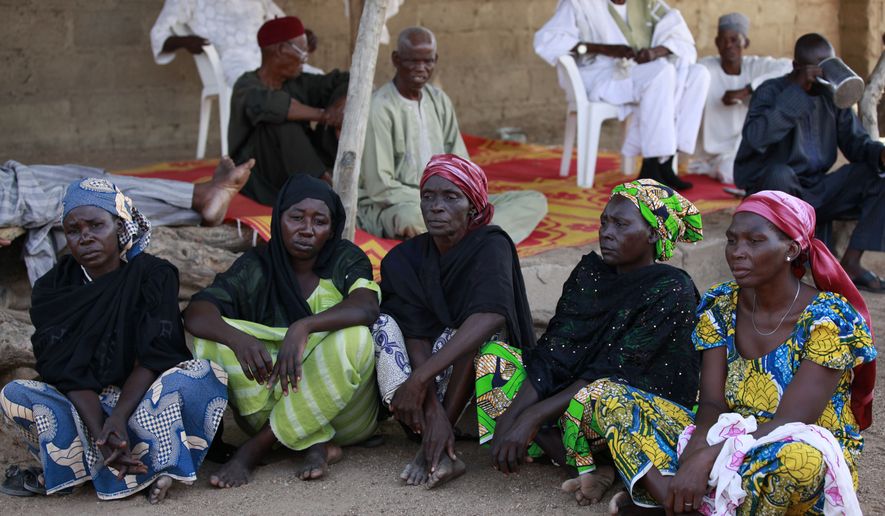OPINION:
Almost a year has gone by since Boko Haram, a radical and violent subsect of Islam, kidnapped 276 Nigerian schoolgirls from the Nigerian village of Chibok. Hopes of a rescue were raised when the Nigerian army called a truce between government forces and the militant Islamist group in October, but few believed a swift or good outcome was likely. So far there hasn’t been one. Good faith, alas, rarely survives in Africa.
Nigeria held presidential elections last Saturday, but there’s little hope that elections will change much, either. The main contenders, President Goodluck Jonathan and onetime dictator Muhammadu Buhari, an army general, last week “recommitted” themselves to a peaceful outcome. Few think that’s anything more than argle-bargle.
Boko Haram has been up to no good since 2010. Its primary targets are children. These Muslim warriors prefer going after children because children can’t fight back, and Boko Haram “rescues” the children from schools with Western values, where they learn something, and puts them in radical Islamic schools, where they learn only demented theology. A little girl learns only how to be a sex slave or a suicide bomber.
Boko Haram is an equal opportunity oppressor. More than 100 Christian men have been killed by the sect, and 59 schoolboys were killed last year. Boko Haram’s partners in these attacks are al Qaeda in the Islamic Maghreb, which has provided training to kill, and al Qaeda in the Arabian Peninsula.
The kidnapped girls have been forced to “convert” to Islam and enter into marriage with members of Boko Haram, with a reputed bride price of $12.50 each. Police are still not sure how many girls were taken in that first raid. Mr. Jonathan said then that the government was doing everything it could to find the girls, and then blamed the parents for not supplying good information to the police.
Boko Haram leader Abubakar Shekau claimed responsibility for the kidnappings last year, saying that “Allah instructed me to sell them … I will carry out his instructions. Slavery is allowed in my religion, and I shall capture people and make them slaves.” He said the girls should not have been in school in the first place and should have been married since girls as young as 9 are thought suitable for marriage.
Following the kidnappings, Boko Haram abducted another eight girls, aged 12 to 15, from a village in remote northeastern Nigeria, a number later revised to 11. The outcry from the West was full of bluster and bravado, but the noise now is not much more than whimpers. The promises, including those from first lady Michelle Obama, have been reduced to a Twitter hashtag, #BringBackOurGirls.
Reuters and the BBC report that hundreds of women and children are missing from the town of Damasak, liberated from Boko Haram. “They took 506 young women and children” in Damasak, a trader named Souleymane Ali tells a Reuters reporter inside the town. “We don’t know if they killed others after leaving, but they took the rest with them.” Boko Haram has abducted as many as 2,000 women, but most incidents go unreported.
In January, a girl said to be as young as 10 was strapped with explosives. She marched into a market and the bomb exploded, killing her and 16 others.
The Rev. Enoch Mark, a Christian pastor with the Church of the Brethren whose two daughters are among the kidnapped girls, is in hiding. Boko Haram wants to kill him because he was a spokesman for the parents of the girls kidnapped in Chibok.
“I have been spending the nights sleeplessly worrying about what condition my daughters might be in,” the pastor tells The Associated Press. “I am so disturbed, thinking of my daughters, thinking of the other Chibok girls.”
In the West, elections can mean that evil will be addressed and reversed. To accomplish that in Nigeria, the nations of the West must remain focused on the girls, a lost generation. Confronting and destroying such evil requires more than a tweet and a hashtag.




Please read our comment policy before commenting.